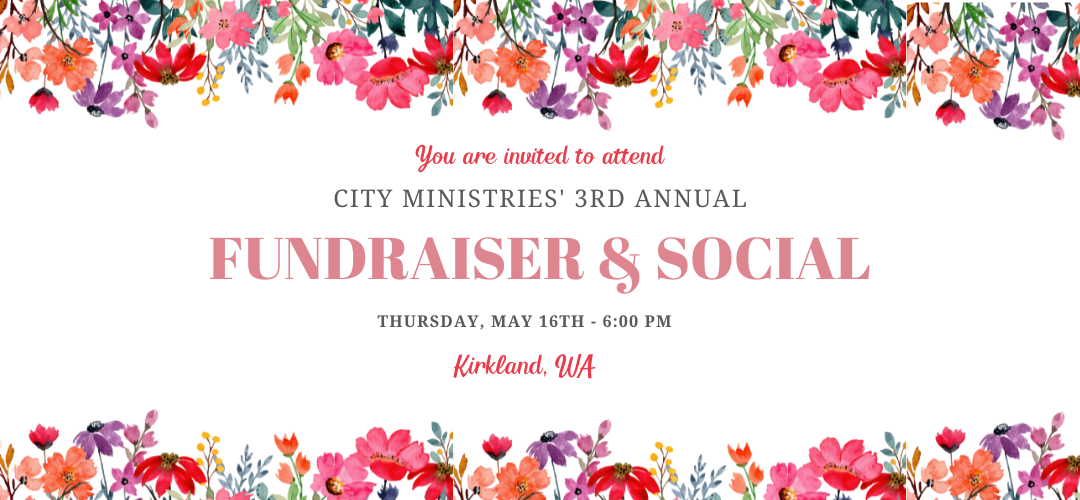Have you ever noticed how many Christmas songs connect being home with the magic of the holidays?
“Home for the Holidays” by Perry Como.
“Heading Home for the Holidays” by Neil Diamond.
And how about “I’ll Be Home for the Holidays” by The Platters.
Home and holidays are interchangeable.
But what happens if you can’t be home for the holidays? How can the holidays still be a special and safe experience when home is neither of those?
If you’re a parent to a foster child, you know that abuse, neglect, and trauma don’t take a break during the holiday season. A child enters the foster care system regardless of the season.
Transitioning to a new home is already challenging. When you also consider the holidays, it becomes an even more sensitive situation for a youth experiencing the foster care system.
This year, this matter has been very personal for me and my family.
Our latest foster child came to us as the holiday season was starting. It became clear fast. Navigating the holidays with a child in care would need a delicate balance of understanding and sensitivity.
If you’re a foster parent and need extra support, reach out to City Ministries Child Placement Agency. They’re a faith-based agency in the greater Seattle area offering personal case management to all their foster families.
Email them today with your needs and let them support you and your child in care.
Holidays can be challenging for all foster children. It can invoke many memories, emotions, and wounds still needing to heal.
In this article, I’ll discuss how you can best care for your foster child during the holidays.
- Understanding Foster Children’s Emotional Needs During the Holidays.
- Creating a Safe and Inclusive Holiday Environment for Your Foster Child.
- How to Manage Holiday Stress, Anxiety, and Grief.
- Involving Foster Children in Holiday Planning.
- Organizations in the Seattle Area That Support Foster Children During the Holidays.
Understanding Foster Children’s Emotional Needs During the Holidays.
For my biological children, the holidays are a time of excitement and anticipation. It’s the one time of year where I can almost predict them to be in a happy mood. However, I want to be cautious when assuming my foster child will have the same emotions.
Understanding your child’s emotional needs is important when providing the right support.
Here are some ways you can help manage your foster child’s emotions:
- Recognize Emotional Triggers: Your child may withdraw or become upset when seeing certain holiday decorations or movies. As it can remind them of their past experiences. Ask your child about their response to these triggers. Offer comfort and alternative decoration or movies.
- Understand the Impact of Their Past Trauma: A child whose experienced neglect and abuse might hoard holiday treats or gifts. Provide plenty of reassurance if you notice this happening. Remind them their needs will continually be met and that they’re in a safe environment.
- Respect Mixed Feelings About Holidays: Your foster child might feel guilty about enjoying the holidays with their new family while missing their biological family. You can confirm all their feelings. Emphasize that it’s okay to feel happy, sad, lonely, excited, or all.
- Acknowledge Their Grief and Loss: Holidays can be tough for a foster child. They may feel sad during celebrations remembering times with their biological family. Give your foster child space. Ask if they want to talk about their family and share any traditions they have.
- Manage Behavioral Changes: Your otherwise calm child might act out or become more disruptive as the holiday season approaches. Respond to this change in behavior with patience and understanding.
- Provide Stability and Consistency: All the extra activities during the holiday season can create a chaotic schedule. This can be overwhelming for foster children who crave predictability. As much as possible, keep up with your regular schedule and routine. Let your foster child know any changes to their schedules in advance.
Understanding and preparing for your foster child’s emotional needs during the holidays helps you offer better support and solutions.
Creating a Safe and Inclusive Holiday Environment for Your Foster Child.
This means making foster children feel valued, respected, and a member of the family. It also includes being mindful of their unique backgrounds and experiences.
Here’s how you can create a safe and inclusive holiday environment for a child in care:
- Respect Their Cultural and Religious Backgrounds: If your foster child comes from a different racial or ethnic background, include their holiday traditions in yours. This includes food, music and dancing specific to their culture.
Teach your family about these celebrations.
- Create a Sense of Belonging: Your child may feel like an outsider during this intimate time of year. Family gatherings often involve reminiscing about past holiday experiences. Introduce your foster child as a valued member of your family.
Involve them in family photos and other traditions and activities. If you choose to post holiday family photos that include foster children please follow DCYF’s Social Media Policy for posting photos online.
- Provide Emotional Security: Your foster child might show signs of anxiety when discussing holiday plans. Especially if they involve new extended family members. Reassure them about what to expect.
- Balanced Gift-Giving: You may feel the need to overgive to your foster child. Overwhelming them with too many gifts may cause discomfort or confusion. If you have other children in your home, make sure it’s even among all kids.
- Organize Get Togethers With Biological Family Members (if appropriate): Your foster child may want to do a holiday activity with their biological family. You can help in creating shared family experiences.
This year my family will be joining our foster child’s family to go ice skating and visit Santa.
- Offer Quiet Spaces: If you sense your foster child’s overwhelmed, find a quiet space where they can regroup. Let them know it’s always okay to step away to retreat and relax if needed.
- Encourage Open Conversations: Talk to your child about how they feel being separated from their family during the holidays. Not being with family means they may miss seeing relatives like grandparents, aunts, uncles, and cousins.
Let them share with you how this makes them feel and validate that their grief is okay.
- Create New Traditions: Your family traditions might differ from what your foster child’s used to. This can lead to feelings of alienation. Get your foster child involved in creating new ones.
My kids are so excited this year because we’ve created a new tradition in honor of our foster child – opening a gift on Christmas Eve.
Support your foster child’s well-being during the holiday season by creating an environment that’s welcoming and mindful.
How to Manage Holiday Stress, Anxiety, and Grief.
It’s important to keep in mind that the holidays, while joyous, can be a time of heightened emotions and reminders of past trauma for foster children.
Addressing your foster child’s emotions surrounding the holidays is important for a few reasons, including:
- Helps them feel understood and supported.
- Reduces the risk of other emotional and behavioral issues.
- Builds trust and security with their foster family.
- Encourages emotional healing and resilience.
Here are five ways you can manage your foster child’s stress, anxiety and grief during the holidays.
-
Identify Triggers.
You may notice your child becomes anxious or sad when they hear holiday songs or watch movies that remind them of past events. Be aware of these triggers. Offer comfort and reassurance when triggers are unavoidable.
-
Encourage Expression of Feelings.
If your foster child is feeling sad, they may not know how to express their grief. Create a safe place for them to talk about their feelings. Using art, journaling, or storytelling are great ways for self-expression.
-
Provide Reassurance.
Foster children worry about what the holidays will look like in their new home. Ease their anxiety by talking about holiday plans in advance. Reassure them that they’re invited to all family activities. But give them permission not to take part if they’re uncomfortable.
-
Limit Expectations.
It’s hard to know how a foster child will feel spending the holidays apart from their families. Your foster child might feel pressure to be happy or grateful when inside they feel the opposite. Emphasize that all feelings are valid and safe. It’s okay not to feel *festive*.
-
Respect Their Past.
Your child might reminisce about past holiday experiences and memories involving their family. Let them share. Listen to their stories and acknowledge their past. This shows you respect the life they had before they entered care.
It’s impossible to remove the stress, anxiety, and grief your foster child may feel. But these tips can help manage their emotions. Making the holidays more enjoyable for everyone.
Involving Foster Children in Holiday Planning.
Here are ten ways to involve your foster child in the holiday preparation plans:
- Decorate Cookies: Let them help make the cookies and decorate with edible decorations. Or if you feel adventurous, decorate gingerbread houses.
- Holiday Crafts: Engage in holiday crafts like making paper snowflakes or handprint ornaments. Have them help you hang them around the house or give them as gifts.
- Story Time: Wrap 25 of their favorite books and each day your child can unwrap one and read it together. Have older siblings read to the younger ones.
- Decorate the Tree: Depending on their age, they can help string lights or hang ornaments. And if you have a real tree, make them in charge of watering it.
- Secret Santa: Draw names and plan a time to head out shopping for your secret santa gift. If your child is old enough they can wrap the gift, too.
- Planning Menus: Involve them in planning the holiday menu. Have them pick out their favorite dishes. Get them involved in the prepping and cooking of the meal.
- Holiday Cards: Spend an afternoon hand making cards for family and friends, teachers, and neighbors.
- Hanging Lights: Head outside and string lights on the trees and bushes. This was a particularly big hit with our foster child this year.
- Holiday Playlist: Create a holiday playlist together with everyone’s favorite songs. Keep it on repeat throughout the season. Have a family lip syncing battle.
- Movie Nights: Have regular holiday movie nights where everyone gets to pick their favorite movie. Enjoy some of your decorated cookies and eggnog.
- Santa Visit: Plan a day where you’ll go visit Santa and get pictures taken. Wear matching sweaters, hats, or scarves.
If your foster child has an interest, plan an event incorporating their hobbies. Getting your child involved in the planning stage helps them feel included and valued during the holiday season.
3 Organizations in the Seattle Area That Support Foster Children During the Holidays.
Treehouse
Treehouse is a leading nonprofit organization in Washington state. They focus on supporting youth experiencing the foster care system. During the holiday season they have a program called Holiday Magic. Foster children receive one meaningful gift, making their season a little brighter.
You can also sign up your foster child for the Treehouse Store.
Foster children and their caregivers can shop in their Seattle store for high-quality items. Including clothing, shoes, school items, toys, and books. They even have free tickets to various events and other necessities kids need.
The Treehouse Store supported approximately 4,100 youth in foster care throughout Washington in 2021.
Seattle Angels
Seattle Angels supports children and youth in care, as well as their caretakers. They focus on providing ongoing support through mindful giving, building relationships, and mentoring.
They have two programs for children in care – Love Box and Dare to Dream.
Fostering Family
Fostering Family is an initiative supporting foster children and youth throughout Puget Sound. They work to increase community wide support for all foster children.
They partner with various businesses who’ve committed to supporting foster children and families by offering goods, services and mentorship.
Get the Support Your Foster Child Needs Today.
Foster parenting, while rewarding, comes with its unique set of challenges. Especially during the holiday season – a time that can bring up a mix of emotions for foster children.
Remember, you’re not alone on this journey.
If you find yourself needing extra guidance or a helping hand, email City Ministries Child Placement Agency. Their experienced case managers understand the complexities of foster care. And are ready to offer the support you and your child need.
Together, they can help make the holidays a little bright for your foster child.



